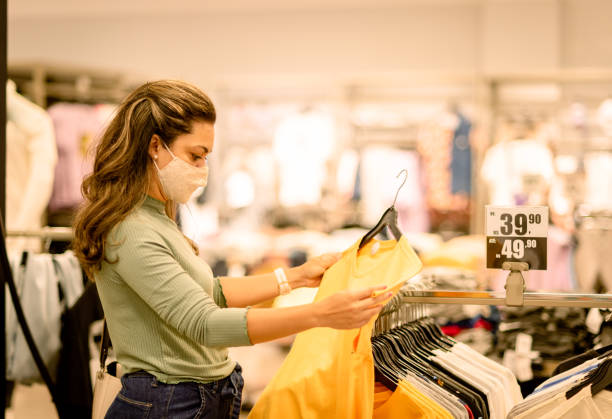The Covid-19 pandemic is causing a lot of social, economic, and political turmoil in 2020. The fashion industry has been impacted by colossal change, and the global supply chain is in a difficult situation. Major apparel brands and retailers canceled or delayed billions of dollars in order to minimize losses.
The COVID-19 pandemic is causing a lot of social, economic, and political turmoil in 2020. The fashion industry has experienced colossal change, and the global supply chain is in a troubled situation. Major apparel brands and retailers, in a bid to minimize losses and satisfy shareholders, have canceled or delayed billions of dollars worth of orders. This includes orders that were already ready to ship.
The main reason for this is the closure of stores in Europe and America. The supply chain has been affected by this, as many suppliers have had to suspend or lay off millions of workers in factories without payment and severance. Brands are used to not paying for clothing until it has been shipped. This puts both suppliers and workers in a very vulnerable position. The policies push a group already in danger into poverty and hardship. The pandemic has revealed an unfair system to the public.
According to the Bangladeshi Garment Manufacturers Exporters Association, at least 1.2 million garment workers have been laid off without pay in Bangladesh after Western brands canceled $2.8 billion in existing orders following the Covid pandemic. To minimize the impact on 60 million garment workers around the world, labor groups, exporters, and manufacturing associations have urged brands not to cancel orders. H&M Inditex Marks & Spencer Kiabi PVH VF Corporation Target and Target have all confirmed that they are going to fulfill their contractual obligations.
In this crisis, many corporations and brands are donating. LVMH Corporation, for example, donated $2.2 Million to Red Cross China and then converted their perfume and cosmetics unit to produce huge quantities of alcoholic gell and pledged to provide 40 million medical masks.
Anisa Kamadoli Costa, the Tiffany & Co Foundation’s chairman and president, donated $750,000 to the World Health Organisation Covid-19 Solidarity Fund and $250,000 to The New York Community Trust NYC Covid-19 Impact & Response Fund.
Many smaller brands, too, have donated masks and volunteered their time.
What needs to change in the fashion supply chain?
Imran Amed, the editor-in-chief of BoF (The Business of Fashion), believes that “it’s time to rewire fashion”. He says that the crisis will “shock the industry into changing” and that collaboration is key. Achim Berg, McKinsey’s global leader of the Apparel, Fashion, & Luxury Group, says the crisis is going to have a long-term impact but also sends a positive message. We have the opportunity to “redesign the industry’s value chain and focus on the values that we measure our action by.”
In terms of buying habits, it is predicted that consumers will focus more on sustainable items and heritage pieces that will last a lifetime. “Many will look for “investment” piece – minimalistic, lasting-forever pieces that will feel more responsible due to the state of the planet.”
The digitization of the industry will be a major part of its rewiring. In these difficult times, many trade shows and in-person meetings have been canceled or postponed across sectors. MeetExpo reports that more than 2,970 exhibitions and fairs around the world have been affected by the disruptions across industries. Fashion shows are now online, with digital fashion weeks in London and Paris. Synzenbe is working with brands and suppliers to find new ways to help the industry navigate the “new norm.” Our platform allows us to connect our industry online more than ever before.
Synzenbe is a five-day event that will take place from July 27, 2020, to July 31, 2021. The show allows suppliers to present their collections to brands and brands to connect with leading global suppliers through one-on-one meetings.
Brands will benefit from connecting with their suppliers to discuss new developments, sourcing fabrics efficiently via the platform, expanding their network with reliable suppliers, and building relationships. They can also access the latest collections, order, and track swatches all in one place.
Suppliers will benefit from connecting and meeting with customers, showcasing products and collections, creating a digital showroom that is branded and personalized, increasing your brand’s presence in the marketplace, building a network of mission-aligned companies, and being featured on our social media platforms.




